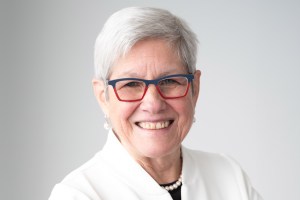Jerome Hamilton Buckley
Faculty of Arts and Sciences – Memorial Minute
At a Meeting of the Faculty of Arts and Sciences April 4, 2006, the following Minute was placed upon the records.
Jerome Hamilton Buckley, Gurney Professor of English Literature, Emeritus, was born in Toronto on August 30, 1917, and received his secondary education at Humberside Collegiate Institute where the principal called him “one of the most brilliant pupils” ever to attend the school. He received his bachelor’s degree from Victoria College in the University of Toronto where he studied under Northrop Frye and E.J. Pratt. In 1939 Buckley came to continue his study of English at Harvard Graduate School where at the age of twenty-two he won the prestigious Ruskin Prize for the best essay on the life, works or interests of that great Victorian figure.
After receiving his doctorate in 1942, Jerry, as he was known to his friends and colleagues, married Elizabeth Adams in June of 1943. As all who knew them quickly discovered, the Buckleys were an inseparable pair–friends, partners, mates, and confidantes. Together they went to the University of Wisconsin where Jerry began as an instructor and was promoted to full professorship in 1954. The Buckleys then moved to Columbia where they remained until coming to Harvard in 1961. Jerry remembered being welcomed to the Harvard English Department by his fellow Canadian Douglas Bush “with open arms…filled with theses.” Until his retirement in 1987, Jerry was a lively and influential colleague teaching popular lecture courses in Victorian poetry and prose and graduate seminars on major nineteenth century writers including Byron, Wordsworth, Tennyson, and Arnold. Jerry was a conscientious colleague and a generous mentor to generations of students whose professional careers he followed and encouraged throughout his life.
Jerry’s scholarship was a powerful agent in the revival of Victorian studies in a period when interest in that field had been overshadowed by something of an intellectual frenzy over high modernism. His dissertation and first book, William Ernest Henley: A Study in the Counter-Decadence of the Nineties (1945) paved the way for his highly influential The Victorian Temper (1951) in which, with extraordinary learning and critical elegance, he crystallized the moral, intellectual, and aesthetic qualities of the greatest Victorian writers and showed them to be much livelier than the stuffed shirts with winged collars that many students had assumed them to be.
Jerry himself was the very antithesis of a stuffed shirt. A winner of the Christian Gauss Award, member of the American Academy of Arts and Sciences, Senior Associate and Acting Master of Leverett House, he required little or no prompting from his colleagues and students to move him to an imitation, with appropriate gestures and grimaces, of Fezziwig, Mr. Micawber, Uriah Heap, Smallweed or Aunt Betsy Trotwood or to revel in gossip about Elizabeth Barrett Browning in Florence or Byron in Venice. The Buckleys’ house in Belmont seemed always filled with the conversation and laughter of friends, students, colleagues, and visitors to the university. Jerry and Elizabeth clearly liked people as well as books.
As a scholar, Jerry was never a mere formalist. He was too interested in the richly human dimension of his subjects to remain on the strict level of metrics and prosody. His 1960 Tennyson: The Growth of a Poet reflected his deep admiration for Tennyson’s long and often painful intellectual and spiritual maturing as well as his exceptional musicality. If Jerry did not draw a clear line separating biography from literary criticism, he was similarly unwilling to disconnect the study of literature from a knowledge of history. His 1966 The Triumph of Time: A Study of Victorian Concepts of Time, History, Progress, and Decadence shows a mind sensitive to the social and political currents of a century as well as to the rhythms and color of imaginative texts.
Jerry Buckley was a Tennysonian with Arnoldian learning and a Dickensian sense of the absurd. To his friends and colleagues he was invariably generous, forgiving, and entertaining. To his students he was an avuncular and encouraging inspiration. He possessed the best of Victorian virtues-curiosity, compassion, a firm belief that things could be improved, loyalty to friends, and deep devotion to family. He lived what he taught.
Jerry died on January 28, 2003, in Boston. He leaves his devoted wife of 59 years, Elizabeth Adams Buckley, his loving children Nicholas, Victoria and Eleanor, and seven grandchildren.
Respectfully submitted,
James Engell
Barbara Lewalski
Robert Kiely, Chair




